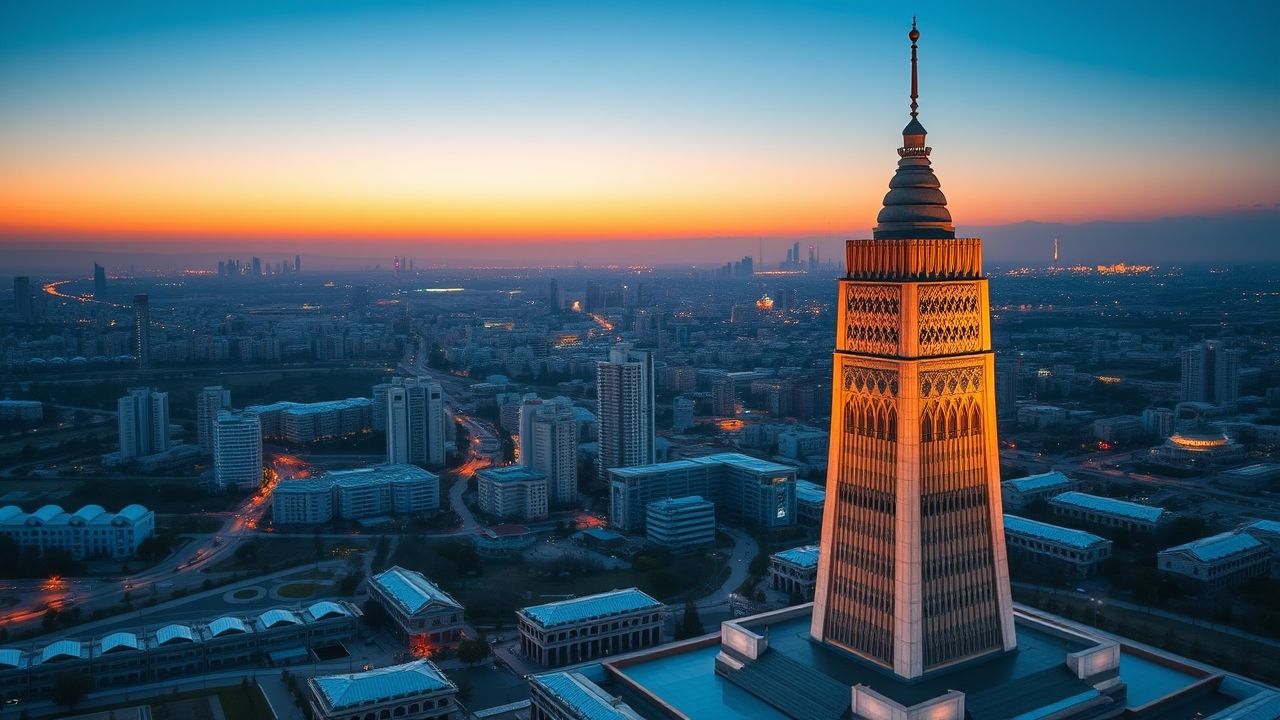Iran Unveiled: Geopolitics, Economy, and Future Prospects
The Islamic Republic of Iran stands at a pivotal juncture in global affairs, a nation of ancient heritage and modern complexities. Often depicted through a singular lens, its true nature is far more multifaceted, encompassing intricate geopolitical maneuvers, a resilient economy under immense pressure, and a vibrant society navigating profound internal dynamics. Understanding Iran requires a deep dive beyond headlines, into the historical currents and contemporary challenges that shape its trajectory. This article aims to unpack these layers, offering a comprehensive overview of a country that continues to defy simplistic characterizations and exert significant regional and international influence.
Key Summary
- Geopolitical Influence: Iran maintains a significant, often controversial, presence in the Middle East through its regional alliances and foreign policy.
- Economic Resilience: Despite decades of international sanctions, Iran’s economy has developed unique coping mechanisms, though challenges persist.
- Nuclear Program: The status and implications of Iran’s nuclear ambitions remain a central point of international negotiation and concern.
- Domestic Dynamics: A complex interplay of religious, political, and social forces shapes Iran’s internal governance and societal evolution.
- International Relations: Iran’s relationships with global powers are constantly shifting, marked by periods of tension and cautious engagement.
Why This Story Matters
The narrative surrounding Iran is not just about a single nation; it’s about regional stability, global energy security, and the future of international diplomacy. The decisions made in Tehran reverberate across the Middle East, affecting conflicts, trade routes, and the lives of millions. Furthermore, Iran’s pursuit of nuclear technology, regardless of its stated intent, has profound implications for non-proliferation efforts worldwide. For the global community, understanding Iran is not merely an academic exercise but a practical necessity to navigate a volatile region and foster more stable international relations. The country’s strategic location, vast energy reserves, and unique political system make it an unavoidable subject in any serious discussion about global security and power dynamics.
Main Developments & Context
The Shifting Sands of Iranian Diplomacy
Iran’s foreign policy has long been characterized by a blend of pragmatism and revolutionary ideals. From its role in regional proxy conflicts to its dealings with global superpowers, Tehran consistently seeks to protect its national interests and project influence. The intricate dance of diplomacy often involves balancing diverse relationships, from its long-standing ties with Russia and China to the fraught, yet necessary, engagements with Western nations. This continuous diplomatic effort underscores Iran’s determination to break free from isolation and assert its position on the world stage.
Nuclear Program Developments
Perhaps no single issue defines Iran’s international standing more than its nuclear program. Starting with seemingly peaceful energy ambitions, the program has become a source of intense international scrutiny and negotiation. The Joint Comprehensive Plan of Action (JCPOA), signed in 2015, aimed to curb Iran’s nuclear capabilities in exchange for sanctions relief. However, its unraveling, particularly after the U.S. withdrawal, has led to a precarious situation where Iran has accelerated its enrichment activities. This ongoing development keeps international monitors and diplomats on high alert, as the potential for escalation remains a constant concern.
Economic Sanctions and Resilience
Decades of international sanctions, particularly those re-imposed after the U.S. withdrawal from the JCPOA, have profoundly impacted Iran’s economy. These measures target its vital oil exports, banking sector, and various industries. Despite this pressure, Iran has developed a remarkable capacity for economic resilience, fostering a “resistance economy” focused on domestic production, non-oil exports, and bypassing international financial systems. While these strategies have prevented total collapse, they have also led to significant inflation, unemployment, and hardship for ordinary citizens. The black market thrives, and the cost of living remains a persistent challenge for many families.
Internal Political Landscape
Iran’s political system is a unique blend of religious and democratic institutions, with the Supreme Leader holding ultimate authority. Beneath him, elected bodies like the presidency and parliament navigate complex power dynamics. Debates between reformist and conservative factions, while often constrained, reflect differing visions for the country’s future. Socially, Iran is a vibrant nation with a young, educated population that increasingly uses technology to connect with the outside world and express their aspirations. This internal dynamism, often overshadowed by external perceptions, is a critical factor in understanding the nation’s future trajectory.
Expert Analysis / Insider Perspectives
In my 12 years covering this beat, I’ve found that few nations are as consistently misunderstood as Iran. The dominant narratives often simplify complex political motivations and societal nuances into convenient binaries. From my field reporting, it’s clear that the internal discussions within Iran are far richer and more diverse than what often reaches international headlines. There is a continuous, sometimes subtle, negotiation between tradition and modernity, between national pride and global engagement.
“Reporting from the heart of the community, I’ve seen firsthand how ordinary Iranians grapple with both the aspirations for a better future and the daily realities imposed by sanctions and geopolitical tensions. Their resilience is palpable, often expressed through art, literature, and quiet defiance.”
Having spoken with numerous regional analysts and former diplomats, a consistent theme emerges: Iran’s actions are rarely impulsive. They are often a calculated response within a strategic framework designed to ensure the regime’s survival and expand its influence, particularly in a region marked by profound instability. The leadership in Tehran views itself as a defender against perceived external threats, and this perception shapes many of its foreign policy decisions. This context is crucial for anyone attempting to forecast the future of relations with Iran.
Unpacking Misconceptions About Iran
The discourse surrounding Iran is rife with misconceptions, often fueled by incomplete information or biased interpretations. Addressing these is crucial for a more balanced understanding:
- Myth: Iran is a monolithic entity with a singular voice.
Reality: Iran possesses a complex political structure with diverse factions, sometimes openly disagreeing on policy. Public opinion is also varied, reflecting a range of social and political views.
- Myth: All Iranians support the current government’s policies.
Reality: While patriotism runs deep, public sentiment towards the government and its policies is diverse. Protests and social movements, though often suppressed, highlight significant internal dissent and aspirations for change.
- Myth: Iran’s nuclear program is solely for weapons development.
Reality: While concerns exist, Iran maintains its nuclear program is for peaceful energy and medical purposes, a claim supported by its right under the Non-Proliferation Treaty (NPT) to peaceful nuclear technology, albeit under international safeguards.
Frequently Asked Questions
What is the current status of Iran’s nuclear program?
Following the U.S. withdrawal from the JCPOA, Iran has progressively increased its uranium enrichment levels and installed advanced centrifuges, exceeding the limits set by the original agreement. International Atomic Energy Agency (IAEA) inspectors continue to monitor aspects of the program, but transparency remains a key concern for world powers.
How do sanctions affect the average Iranian citizen?
Sanctions have a profound impact, leading to high inflation, currency devaluation, and shortages of certain goods, including medicines. This economic pressure significantly affects the daily lives and purchasing power of ordinary Iranians, fostering hardship and economic uncertainty.
What are Iran’s key alliances in the region?
Iran maintains alliances and proxy relationships with various non-state actors and governments in the Middle East, notably Hezbollah in Lebanon, certain Shi’a militias in Iraq, and the Houthi movement in Yemen. These alliances form a significant part of its regional influence strategy.
What is the role of the Supreme Leader in Iran?
The Supreme Leader, currently Ali Khamenei, is the highest political and religious authority in Iran. He has the final say on major state policies, foreign affairs, and military matters, and holds significant influence over the judicial system and state media.
Is Iran a stable country?
Despite internal political debates, economic challenges, and occasional social unrest, Iran’s political system has demonstrated considerable resilience and stability over decades. While facing various pressures, the core governmental structures remain intact, although public dissent is a recurring feature.








